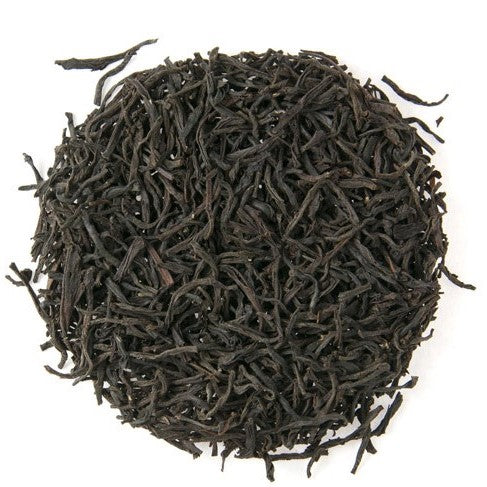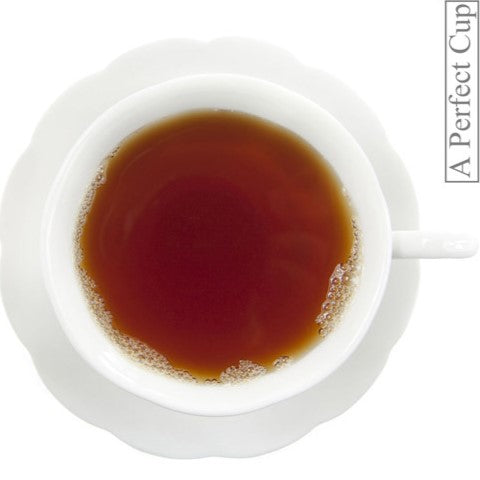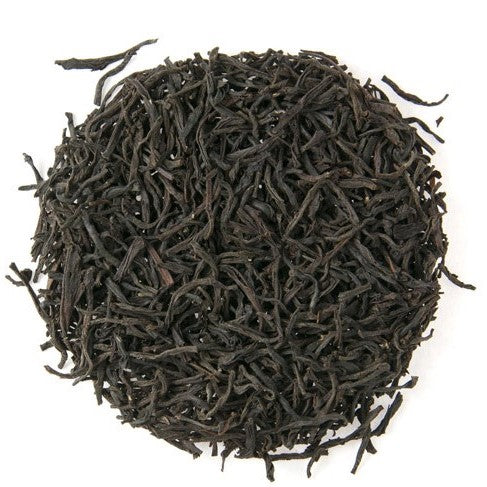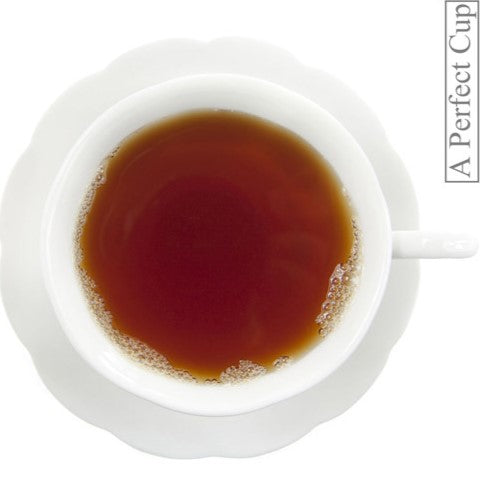Elora Tea
Sylvakandy - Ceylon
Sylvakandy - Ceylon
Couldn't load pickup availability
Bright cup with excellent flavor and floral notes. This traditional ceylon estate tea has a high quality, evenly graded leaf.
HEALTH PROPERTIES: High in anti-oxidants
ETHICS: Ethical Tea Partnership & GMO Free
GRADE: Orange Pekoe (OP)
CAFFEINE LEVELS: Medium
TEA SOURCING: Sylvakandy Estate, Sri Lanka (Ceylon)
THE STORY OF SYLVAKANDY ESTATE AND CEYLON TEAS
Most tea sold commercially is blends. Tea companies blend teas from different locations, in an effort to produce a consistent flavor year after year. An 'estate tea' is different. Estate teas are produced by a particular tea estate, in a particular region, in a particular year, and they will never be identical year after year, as the growing conditions will change from season to season and year to year.
Ceylon was renamed Sri-Lanka in 1978, after the country's independence from the British Empire. The country's documented history is 3000 year old, with evidence of human settlements dating back 125,000 years. The island was of considerable strategic importance from the 1600s onward, as it was linked to the Silk-Tea road, and had deep harbours that made it a significant player in international maritime trade.
The Dutch took control of Ceylon in 1640, initially in conjunction with the Kingdom of Kandy. The British took control in 1815. James Taylor of Scotland, who is regarded as the father of Ceylon Tea, planted an estate in Kandy in an effort to address the monopoly china had over the tea trade. The first tea sale began in 1873, with a 23 pound shipment of tea bound for England, that was richly priced. Ceylon became synonmous with tea, producing high-quality products that were in demand world-wide. After independence, the Sri-Lanka tea board retained the name Ceylon, and still markets "Ceylon teas" today.
Throughout the world of tea, Sylvakandy Estate has been associated with exceptionally crafted teas. Their orange pekoe grade is the best example of the high quality they offer. Sample a pot for yourself, and you will discover a wonderfully rich cup with lush floral notes, a medium thick liquor, and a bright golden cup.
Sylvakandy is located in the Central Province of Sri Lanka in what is known as the Matale District. The location was chosen for its high elevation - the estate's gardens range from 550 to 1220 meters above sea level, where it benefits from a heavy and consistent rainfall. The factory at Sylvakandy sits at 805 meters above sea level at the estate's approximate halfway vertical point. The estate is split into 4 divisions with a little over 520 hectares under tea and 566 employees. Commencing in 1965, a replanting was undertaken with higher yielding clonal varieties and to date nearly 45% of the estate has been switched over. (Replanting is no small task!)
Like most Sri Lankan tea estates, ownership of Sylvakandy has changed hands a number of times since it was first planted. The first Superintendent of the estate was a British planter and avid hunter named Mr. Fraser who served until the First World War, some of his hunting trophies still adorn Sylvakandy's main bungalow! The last British superintendent was a Mr. Lacey who ran the estate from 1951 - 1959. An eccentric Brit, Mr. Lacey was also a concert pianist - at night his music could be heard drifting over the tea fields. In 1959 the estate was purchased by a private company and run as such until 1974 when all Sri Lankan estates were nationalized and appropriated by the J.E.D.B. (The Janatha (National) Estate Development Board. In 1977 it was handed over to the Sri Lankan State Plantations Co-operation and then re-privatized in 1993.
Sylvakandy Orange Pekoe, like most single estate non-blended teas it is best enjoyed hot with a dash of milk to help open and expand its flavor profile. World-class teas like Sylvakandy hold as many nuances and subtleties as fine wines and should be savored with an open mind and clean palate. Brew a pot today and enjoy!
BREWING INSTRUCTIONS
BREWING INSTRUCTIONS FOR HOT TEA: Infuse one slightly heaping teaspoon for each 8 ounce cup with boiling water for 3-7 minutes.
Infuse 6 slightly heaping teaspoons of tea with 1 1/4 cups of boiling water for 5 minutes. Quarter fill a serving pitcher with cold water, and add the infused tea, straining the leaves, to the pitcher. Add ice and top-up the pitcher with cold water. Add lemon and sweeten to taste. A rule of thumb when preparing fresh brewed iced tea is to increase the strength of hot tea since it will be poured over ice and diluted with cold water.
Infuse 1 slightly heaping teaspoon of loose tea with 6 ounces of boiling water for 5 minutes. Add the tea to a 12 ounce glass, filled with ice, straining the leaves. Add hot tea to a 12oz/375ml acrylic glass filled with ice, straining the tea or removing the bags. Add lemon and sweeten to taste.
NUMBER OF CUPS: 15-20 cups from each 50 grams of tea, with a single use of the leaves. Loose leaf tea is traditionally infused 3 times, with a different flavor profile following each infusion. Accordingly, each 50 gram bag can make up to 60 cups of tea.
Share



